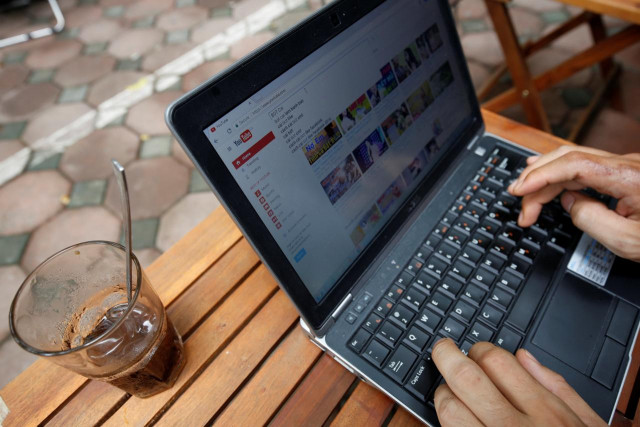Understanding 5GW+: social media — II
When we adjust our ‘privacy’ settings, we take it for granted that our ‘public’ post will be exactly that –public

Representational image. PHOTO: REUTERS
A simple Google search will reveal complaints against Facebook for a number of things, including lack of customer support, censorship, ‘errant’ communications, inconsistent policies, political bias, ‘trending fake stories’ and ‘trolls’ who attack those who complain about Facebook — I’ll leave it up to the reader to determine if Facebook is contributing to burgeoning cyber anarchy, or working to combat it.
Social media use may condition us to expect less of one another, but the flipside is that we expect more from social media. It should be socially responsible. Since Facebook takes it upon itself to “encourage respectful behavior,” it should ensure its users have a clear understanding of such, have clear definitions of terms used in this space (ie what is ‘public’ and what is ‘private’), and exercise the same respectful behaviour to its users. However, this is not the case.
Over the past few years, I have experienced what I believe to be unfair practices and intimidation tactics; these include ‘un-verifying’ two of my social media pages and lack of customer service to reinstate it; invasion of privacy; and censorship to name a few. In my attempt to be fair and objective, I have tried to resolve these matters ‘privately’ by reporting these events directly to Facebook. However, after repeated attempts to resolve my concerns, seemingly little — if any — progress has been made. Facebook’s responses did not correct the issues and responses were either automated or crafted by someone who did not wish to remedy the issues. Now I’m taking this matter public, beginning with Facebook’s definition of ‘public’ which should not be confused with what the general population’s understanding of what ‘public’ means to them.
Freedom of speech? The Facebook user deserves to be treated fair and equitably with full and equal access to Facebook functioning, or at least have a clear understanding that populations in certain regions or countries will not have the same access to nor experience of the platform and the reasons behind such. For example, South Asia is a densely-populated region. Yet political units within Facebook tend to favour India’s perspective on hot topics. Co-incidence? An internet search of how often the Twitter CEO, Jack, and the Facebook CEO, Mark, visit India and Pakistan, and a look into their heads of policy reveals what appears to be an unfair bias towards India.
When we adjust our ‘privacy’ settings, we take it for granted that our ‘public’ post will be exactly that –public. This is not the case. Users should have a full understanding that their communications are censored. Further, many users are under the mistaken impression that ‘Freedom of Speech’, as we historically have known it in America, also applies to Facebook. It does not. Facebook is a private entity. Users should be made aware of this. US courts have recently ruled American user’s ‘right to Facebook’ as a means of expressing one’s self, but what does that mean exactly? Does that mean Americans can exercise First Amendment Rights on social media with impunity?
Published in The Express Tribune, January 20th, 2019.
Like Opinion & Editorial on Facebook, follow @ETOpEd on Twitter to receive all updates on all our daily pieces.

















COMMENTS
Comments are moderated and generally will be posted if they are on-topic and not abusive.
For more information, please see our Comments FAQ